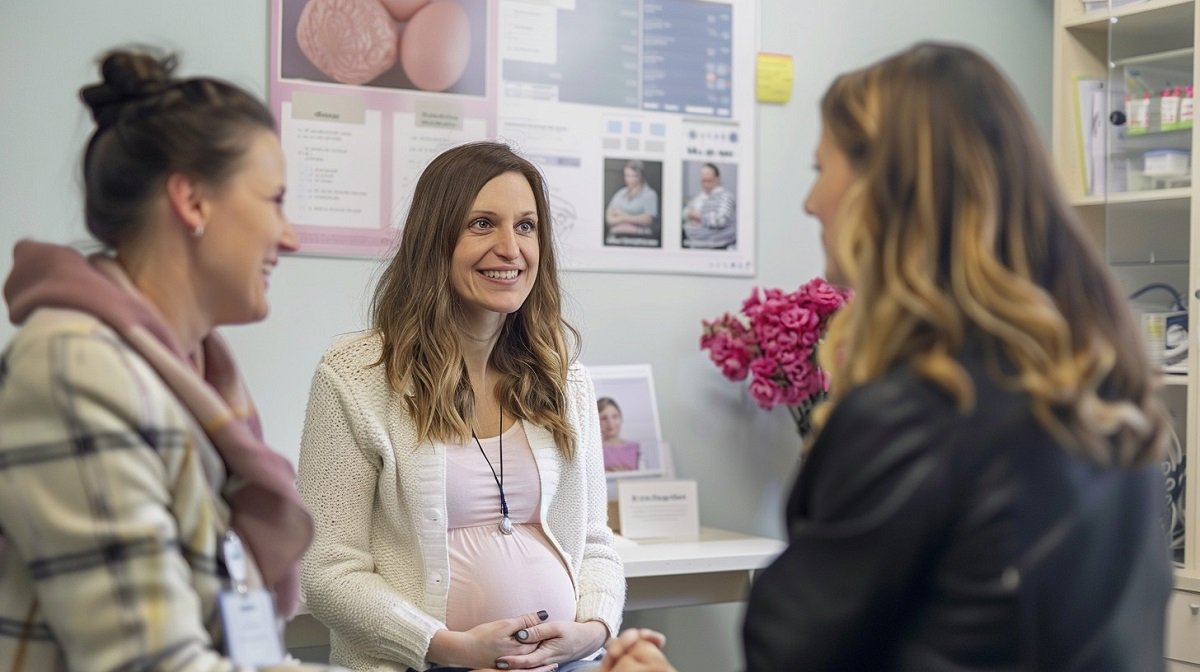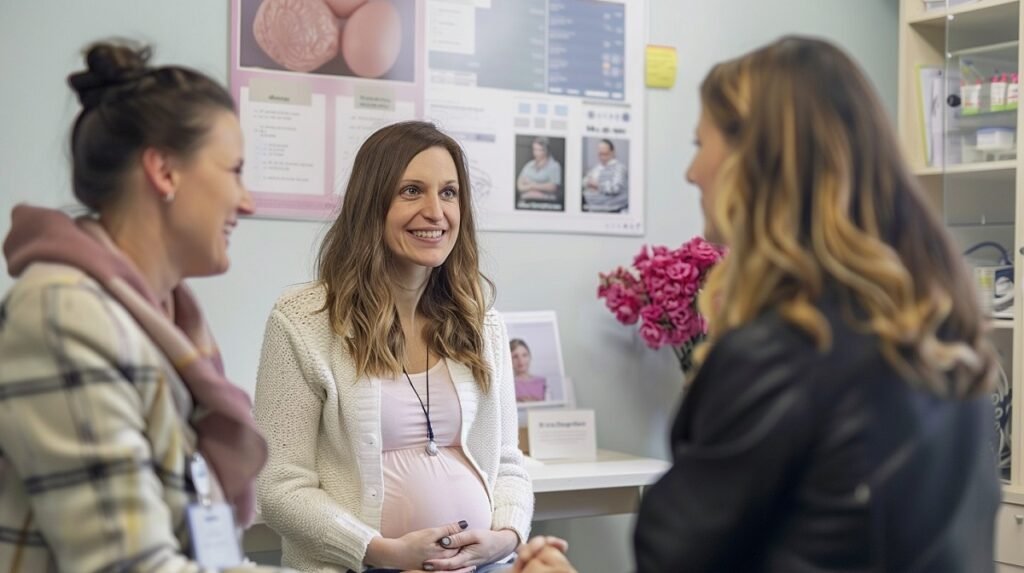A first pregnancy is a life-changing experience that is full of joys, challenges, and a wide range of emotions. When do you start showing first pregnancy is to discuss today. A person’s first pregnancy is a singular and unforgettable chapter in their life, from the moment they realize they are going to be parents to the physical and emotional changes that occur over the nine months. The many facets of a first pregnancy are examined in this essay, ranging from the initial phases of conception to the expectation of labor and the birth of a child.

For expecting mothers, the miracle of pregnancy is the start of an amazing and life-changing journey. Among the most eagerly awaited events are the telltale symptoms of pregnancy, or “showing.” Although each woman’s experience is different, a number of factors influence when a woman begins to exhibit symptoms of her first pregnancy.
The moment a couple finds out they are expecting their first child is the start of an incredible journey. It frequently combines feelings of surprise, excitement, and maybe even a little anxiety. A surge of emotions surges through you as you realize that life is growing inside of you, preparing you for the emotional rollercoaster that lies ahead. A first pregnancy is a journey full of unforgettable moments, such as the first ultrasound appointment when the sound of the tiny heartbeat fills the room and the shared excitement of telling friends and family the good news.
When Do You Start Showing First Pregnancy
1. Biological Variability:
Because the human body is so diverse, every woman’s experience of pregnancy is unique. The biological factors that influence a woman’s period timing include her body type, metabolism, and genetics. In general, as their bodies adjust to the changes, first-time mothers may take longer to show symptoms.
2. Gestational Age:
The number of gestational weeks in a woman’s pregnancy is a major factor in determining when she will begin to show. The fertilized egg implants into the uterus during the first trimester, marking the start of the placenta’s development. The baby bump usually becomes more noticeable in the second trimester, though some women may notice subtle changes during this time.
3. Body Weight and Composition:
How soon a woman’s pregnancy is apparent depends on her pre-pregnancy weight and body composition. Lower body weight women may show signs of pregnancy earlier because a growing uterus is more noticeable against a smaller frame. On the other hand, because of the extra layers of adipose tissue, people who weigh more may take longer to show symptoms.
4. Muscle Tone:
When a woman starts to show is also influenced by the tone of her abdominal muscles. Because their muscles give the growing uterus more support, women with well-toned abs may show later. However, as the growing uterus protrudes more visibly, those with weaker or less toned muscles may show earlier.
5. Number of Pregnancies:
The body reacts differently to its first pregnancy than to others. Due to the less stretched abdominal muscles and ligaments, first-time mothers may take longer to show. The uterus and abdominal wall have already changed in subsequent pregnancies, which could explain an earlier appearance of the baby bump.
6. Hormonal Changes:
Hormones are important during pregnancy because they affect both physical and emotional aspects of the process. Hormonal fluctuations may be a factor in outward manifestations like breast tenderness and enlargement, as well as variations in skin tone. These changes in hormones can happen early in pregnancy and have an impact on a woman’s overall look.
7. Individual Factors:
Apart from the physical factors, personal lifestyle decisions and routines can influence the timing of a woman’s menstruation. Diet, exercise, and stress levels are a few examples of factors that can affect an expectant mother’s general health and, in turn, the timing of the onset of pregnancy symptoms.
Physical and Emotional Changes
The expectant mother experiences substantial emotional and physical changes as the pregnancy goes on. Hormonal changes can cause mood swings, morning sickness, and a host of other symptoms that add to the experience’s individuality. The body also experiences amazing changes as it adjusts to the expanding life inside of it. Every part of a woman’s body is devoted to supporting her growing fetus, from the obvious changes like a protruding belly to the less obvious changes occurring at the cellular level.
Pregnancy Gift Box for Expecting and First Time Moms
The Bonding Process
Pregnancy offers a time when both partners can deepen their relationship with the unborn child and with each other. The feeling of unity and anticipation is enhanced by taking prenatal classes, sharing the joy of feeling the baby’s first kicks, and preparing for the baby’s arrival. The couple’s bond with the unborn child grows as they start to picture the life they will have together as a family, laying the groundwork for the upcoming parenting adventure.
Challenges and Concerns
A first pregnancy is an exciting journey, but it is not without difficulties and worries. Anxiety can be brought on by worries about childbirth, fear of the unknown, and the obligations of parenthood. Physical discomforts like backaches and insomnia can put an expectant mother’s endurance to the test. But these difficulties also present chances for development on a personal level and for fortifying resilience.
Preparation and Planning
The arrival of a newborn necessitates thoughtful planning and preparation. The first pregnancy forces the couple to make many decisions, such as designing a nursery, choosing a healthcare provider, and deciding on a preferred method of delivery. Taking part in childbirth classes, reading parenting books, and consulting with seasoned parents are all essential components of the planning process.
Anticipation of Labor and Delivery
The expectation of labor and delivery grows closer to the due date. Knowing that the moment they have been waiting for is almost here, expectant parents might feel a mix of anxiety and excitement. During this stage, the assistance of a birthing partner—spouse, family member, or friend—becomes extremely important. The first pregnancy ends and parenthood begins with the birthing process, complete with obstacles and victories.
Conclusion
Every woman’s experience during pregnancy is distinct and intimate. A woman’s first pregnancy is influenced by a multitude of biological, physiological, and lifestyle factors that determine when she begins to show. The excitement and anticipation that come with a first pregnancy are universal and signal the start of a journey that will change the lives of the expectant mother and her expanding family, regardless of when the symptoms become apparent.
A first pregnancy is an amazing and life-changing experience that involves many different feelings, physical changes, and difficulties. Beginning with the first discovery and ending with the expectation of labor, the expectant parents set out on a journey that will ultimately shape who they are as a couple and as individuals. The first pregnancy is a monument to the resiliency, love, and dedication that prepare for the adventure of parenthood, despite any doubts and fears that may surface. After the baby is born, the couple’s life is irrevocably altered, and their early pregnancy memories serve as the basis for a lifetime of parenting experiences.


